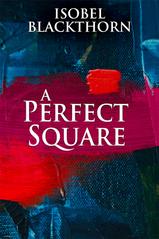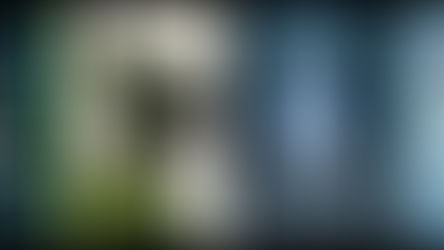A moment with Isobel Blackthorn
- Patricia Leslie
- Sep 8, 2021
- 5 min read
This month, I've had the pleasure of catching up with author, Isobel Blackthorn.

Isobel is a British/Australian author of fiction and non-fiction works covering a wide range of genres. I’ve reviewed several of her novels (including A Perfect Square , The Unlikely Occultist, and The Legacy of Old Gran Parks). was honoured to be the first stop on the book blog tour for The Drago Tree way back in 2015, and lucky enough to spend some time with her during the Historical Novel Society Conference Australasia in 2019. Isobel is a skilled and talented writer and I’m so glad to be having this chat with her today.
Let’s jump right in…
1. Isobel, you have an interesting mix of dark thrillers, mysteries and historical fiction, and non-fiction publications to your name. Do you ever find elements of one genre creeping into the other?
The techniques you pick up in one genre do come in handy in another. Historical fiction authors benefit from trying their hand at thrillers which tend to be driven by action. There’s the need for tight writing and good pacing, and avoiding backstory and exposition, anything that slows the narrative. When you apply those things to historical or contemporary fiction, it sharpens your writing. That said, I no longer write much dark fiction. I pushed that envelope as far as it would go, for the challenge.
I enjoy writing mysteries and hybrid novels. And the occasional thriller. Biographical fiction is hard work but thoroughly rewarding. Mysteries are light and fun. I have a whole world over in the Canary Islands, a pool of characters and a rich setting to draw on. I’ve just finished working on the latest in the series with no sign of stopping.
Non fiction is crazily intense and I won’t produce much for that reason. Although Alice Bailey is not likely to stop beckoning and I do have a number of books in the pipeline associated with aspects of the occult figure and her teachings.
2. Is your ability to diversify writing styles reflected in other aspects of your business and life in general? In other words, what else are you up to?
No, not in the slightest as you will see in my response to your next question. I walk for fitness, although I can’t do that at present. I used to enjoy travelling and visiting friends and family but Covid has halted all that for the moment. So life is rather sparse as it is for a lot of us. I do have a small vegetable garden and a cat. I pour all the creative juice I have into my writing life. That’s who I am. A very interior person. I like to be occupied and fulfilled. I enjoy research. I like to have the next project up my sleeve and ready to go. I suppose I’ve become a bit one-dimensional, but I’m brimming with creative ideas and I am at my happiest when composing. There’s nothing stopping me so why would I stop?
3. You’ve been unfortunate to suffer ill-health over the last few months, how has this impacted your creativity and productivity, and how are you managing it?
I reacted badly to the AstraZeneca vaccine. My immune system overreacted and it didn’t stop overreacting, day in, day out. It was a nightmare. For two whole months I scarcely wrote a thing. The fatigue was crushing. I had brain fog and no concentration. Sometimes I tried. I put myself in front of the computer screen. After a short while dizziness would take hold. It was a creative and productive slump. I was too ill to even care. But other things started to happen. I started to become dissatisfied with my life. I felt crushingly lonely and there were times I fell into despair. I cried. I haven’t lived in this area for long and I suddenly realised my support network was almost non-existent. I reached out to who I did know and they were wonderful. So supportive. The moment I started feeling able, I was back at my desk. I pushed through the dizziness. I worked until the fatigue was too much. At twelve weeks, I found I was more or less back to my old self, with oodles of concentration. If anything, I am more driven than before. When I am at my desk, I no longer fiddle-faddle with distractions like Facebook. I no longer take my time for granted. I just work. I put in eight-hour days and that’s perfect. If I end up writing three books a year as a result, so be it.
4. When it comes to reading, which piece of writing has had the most impact on your life and on your own writing?
Peter Carey’s Bliss. I read that book when I was twenty-five. It was highly influential both in terms of how it was written but mostly due to the theme, the idea of escape to a paradise, a retreat from ordinary suburban life. I read that book twice. I even remember Honey and her bees! It was not long after reading that book that I took off for Lanzarote, one of the Canary Islands, and the grandest passion of my life burst open in me. I have no idea why I fell so deeply in love with that lump of rock, but I did. I’m not alone in being swept away by the place. The volcanoes, the lava, the ocean, the milky blue skies. Ah!
5. Finally, knowing that it may not be the same person from which author or authors, either through their writing, lifestyle or experiences, do you feel has influenced you the most?
Iain Banks is the author who has influenced me the most. He has an easy style and he deploys the jump cut method with finesse. I learned from Banks to use that method to create tension and advance the narrative. A novel that would otherwise plod along with too much unnecessary detail really cuts to the chase this way. Fay Weldon has influenced my style, too. I think the writers I was reading through my twenties embedded themselves in me. Consequently, as a British-Australian, I cannot write in the typically laconic style of Australian prose. I’ll never be a Sofie Laguna or Tim Winton. My style is British, European, North American and definitely not Australian. Knowing this puts me in a bit of a pickle as this is where I live, but tension is the mainstay of the creative life. And there are a multitude of Australian literary voices. I’m sure I fit in somewhere.
I'm sure you do too, Isobel. Thanks so much for sharing your time and thoughts.
To read more about Isobel and her books, head to her website: IsobelBlackthorn.com.au
































Comments